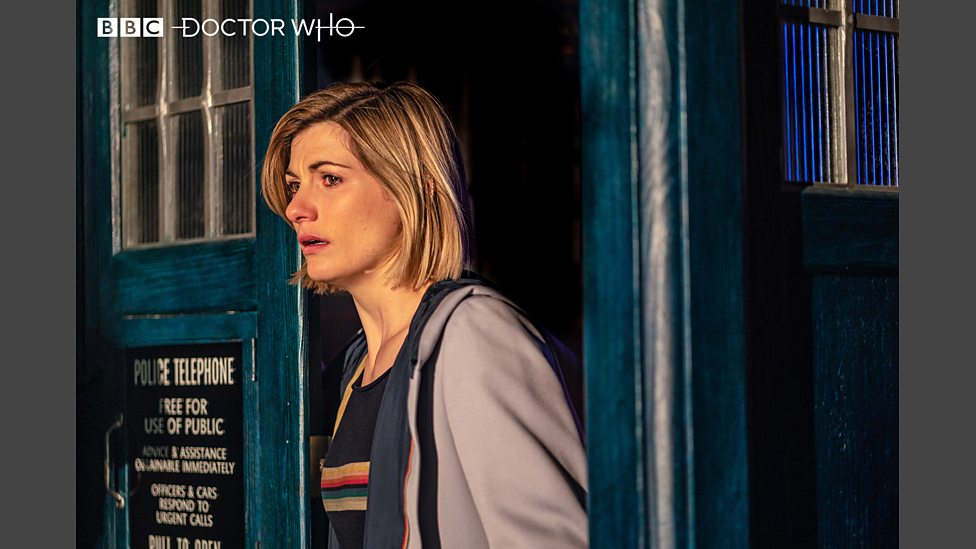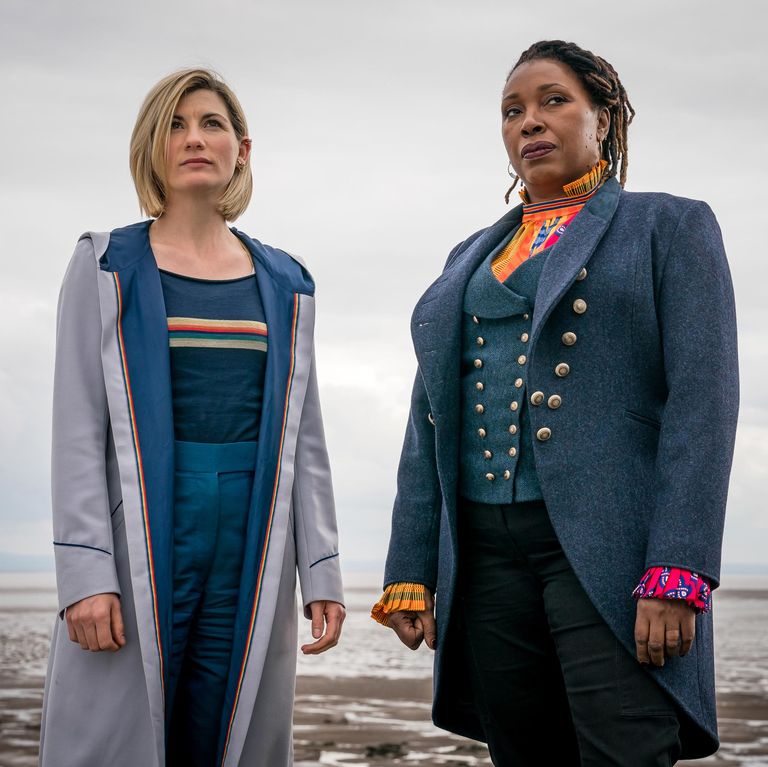; Date: Tue Feb 04 2020
Tags: Doctor Who »»»»
I found this question on an answers website and I guess there really is this conversation still going on about the legitimacy of Jodi Whittaker as The Doctor. Please, people, The 13th Doctor is an incarnation of The Doctor, and Jodi Whittaker has already proved herself. But, it's a worthy enough question to ponder for today. Why did the BBC take so long to place a woman in the position of The Doctor?

Inside the confines of the Doctor Who universe it might be that time lords have a preference for one gender over another. But clearly what drives the choice of male versus female gender for The Doctor is within the confines of the BBC management. It is the BBC that selects the actor for each incarnation of The Doctor, not some mystical process on Gallifrey.
With that in mind the obvious reason why it took until 2018 for a female incarnation of The Doctor is summed up with an often used phrase --- GLASS CEILING
In the 1960's though 1990's the norm was for such roles to go to men. The word "Lord" in British society even tends strongly to refer to Men, and therefore Time Lords would seem to clearly tend to be men.
Indeed, most of the televised Time Lords that have been seen are men. In the 1980's there were women Time Lords shown in Doctor Who. One, Romana, was even a Companion of The Doctor for two incarnations.
Another related issue is the acceptance of gender reassignment. Wouldn't a gender switch on The Doctor be symbolic of gender roles in society at large? Gender reassignment was seen as controversial in the 1960's through 1990's. Today, in 2020, it seems that a larger portion of society is more accepting of gender fluidity even though it is still very controversial among many.
The BBC would have undergone a considerable risk even in the 1990's to switch The Doctor's gender. As an example, take the case of Ellen DeGeneres, an actress and comedian whose career started in the 1980's. When she came out as a lesbian in 1997 it was hugely controversial. I recall a similar controversy when there was shock a gay couple kissing on national TV in a TV program sometime in the 1990's. When DeGeneres came out, she did so in an appearance on the Oprah Winfrey show, and then in her program Ellen her character came out to her therapist who so happened to be played by Oprah Winfrey. Over the next couple years ratings and viewership for that show fell off, in part because ABC downplayed the marketing, apparently because ABC was uncomfortable with the material being presented.
The point of bringing all that up is - would would have happened at the BBC if the 7th Doctor was not Sylvester McCoy, but a woman actress?
I don't watch TV very much - in fact the entirety of what I watch of television programs is Rachel Maddow and Doctor Who. Therefore I do not know much about what's happening on regular television nowadays.
I did watch the rebooted Battlestar Galactica when it was being broadcast. That was an utterly excellent program - and I mention it because a leading character, Starbuck, was a gender switch from the Starbuck of the original Battlestar Galactica. The original Starbuck and Apollo were best friends, but male. In the relaunched show, they switched Starbuck to be a badass woman, and then had some sexual tension going on between Starbuck and Apollo. That gender switch caused a certain amount of controversy among fans of the old Battlestar Galactica.
Therefore it is unsurprising that controversy still reigns over the choice of Jodi Whittaker as The 13th Doctor. Because clearly there are some people who are stuck enough on fixed ideas of gender roles to raise a stink over this.

Curiously when The Fugitive of The Judoon appeared, and it featured a whole new incarnation of The Doctor that had never been seen before, the gender of that new Doctor was not the controversy. Nor was the actress's skin color a controversy. (Jo Martin is Jamaican and therefore has dark skin) The controversy instead has been where does this previously unknown Doctor incarnation fit? That's because The Ruth-Doctor does not fit accepted Canon of Doctor Who, and it's got all us old-time fans scratching our heads mumbling over regeneration cycles and whether there was a gap in The Doctor's timeline into which The Ruth-Doctor fits, etc.
And since I mentioned Rachel Maddow, it's also nice to see that her gender choices does not affect her ability to be a political commentator on television. What I mean is that regardless of whether someone likes or dislikes what Rachel reports on her program, I rarely see it mentioned that she is openly a lesbian and is openly married to another woman. Instead what's mentioned about her is how excellent (to many) her reporting is, or how vile and full of lies (to others) her reporting is.
Getting back to Doctor Who - the first time the BBC considered showing The Doctor regenerate into a woman was this Doctor Who Comic Relief Special ... The Curse of Fatal Death
This video had The Doctor and The Master facing off in some hair-brained scheme of The Master's. Over the course of 20 minutes there were several incarnations of The Doctor, played by Rowan Atkinson, Richard E. Grant, Jim Broadbent, Hugh Grant and Joanna Lumley. The last was obviously a woman. Even though this video is not considered Doctor Who Canon, it can be seen as shifting thinking about which gender can play The Doctor.
It just so happens that The Curse of Fatal Death was written by Stephen Moffatt. A few years later he was chosen to be the Doctor Who Show Runner, and during his tenure the primary basis for gender switching among Time Lords was laid. This included The Doctors Wife during which The Doctor mentioned a Time Lord, The Corsair, who'd been both male and female. Then there was the excellence portrayal of The Master, called Missy, when Michele Gomez was given that role. And during Peter Capaldi's time there were plenty of mentions that Time Lords do not have strict gender boundaries when they undergo regeneration.
Bottom line is that women are taking on larger and larger roles on television. In my opinion that's a good thing, because the old ways of rigid gender roles was ... er ... stuffy is the word that comes to mind. Why can't a woman take on a wider variety of roles than they were allowed in the past?











